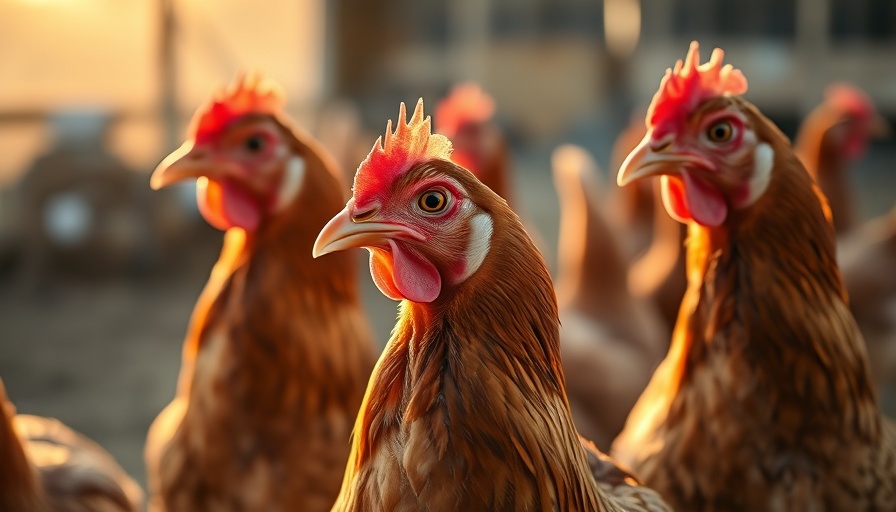
US Faces H7N9 Outbreak: What Clinic Owners Need to Know
A highly pathogenic avian influenza (HPAI) strain, H7N9, has been detected for the first time in US poultry since 2017, raising concerns among veterinary clinic owners and poultry practitioners across the nation. The outbreak was reported on a commercial broiler farm in Noxubee County, Mississippi, after clinical signs were first observed on March 8, 2025. In a swift response to curtail the virus's spread, over 47,000 birds were depopulated by March 13. The Mississippi Board of Animal Health (MBAH) is actively collaborating with health officials and the poultry industry to monitor flocks statewide.
Symptoms of HPAI can vary widely, but common indicators include lethargy, decreased egg production, deformities in eggs, and respiratory distress. This recent outbreak emphasizes the importance of vigilant biosecurity measures, especially for hobby poultry owners who may not be as equipped to handle such infections. Since November 2024, HPAI cases have already been noted in migratory waterfowl in Mississippi, signaling a potential risk to domestic flocks and farms.
Why Biosecurity Matters Now More Than Ever
Veterinary professionals must stress the significance of biosecurity to their clients, as heightened awareness can prevent further spread of H7N9. Clinics could enhance their outreach by offering workshops on how poultry owners can recognize signs of illness, establish good biosecurity practices, and report any suspicious deaths or illness promptly. A collaborative approach between veterinarians and the poultry community will be crucial in mitigating this health crisis.
Encouraging Proactive Measures Among Pet Owners
Pet and hobby poultry owners are at the frontline of this situation. As stated by the MBAH, it is vital for them to report any unusual bird deaths or illnesses immediately. The suggestion to double-bag and properly refrigerate deceased birds for potential testing highlights the need for responsible poultry management practices. Simple actions, such as proper handwashing and the use of personal protective equipment, can make significant differences in preventing the spread of HPAI.
Next Steps for Veterinary Clinics
Veterinary clinics should leverage this outbreak as an opportunity to reinforce their value to clients, offering guidance on biosecurity practices and conducting health checks for affected flocks. By positioning themselves as essential partners in animal health, clinics can enhance client loyalty while safeguarding public health. As this situation evolves, keeping the lines of communication open between veterinarians and poultry owners will be essential in navigating the complexities of HPAI management.
 Add Row
Add Row  Add
Add 

 Add Row
Add Row  Add Element
Add Element 




Write A Comment